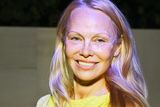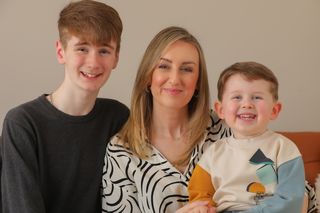The art of political awards speeches
Making a powerful political point in a speech like Meryl's isn't always easy. Some stars deliver serious turkeys
What a difference a rubbish acceptance speech makes. As he strutted to the podium to pick up a Golden Globe award on Sunday, Tom Hiddleston was celebrated by his peers. But then he opened his mouth and out poured a deluge of self-congratulatory dross about how his gong-garnering turn in The Night Manager had brought "relief" to Médecins Sans Frontières volunteers in South Sudan, of which he was "immensely proud".
The glow of self regard was almost as shiny as the auspicious orb he had just accepted from the Hollywood Foreign Press Association.
"This is Tom Hiddleston's 'did I ever tell you about the time I went backpacking in Europe?' story to get laid," proclaimed one eye-rolling tweet - part of a chorus of disapproval directed at a speech which, indeed, appeared to be imply that a few DVDs of The Night Manager were all that stood between aid workers and the grip of despair.
Unfortunately for Hiddleston, the gaffe was on the same evening that Meryl Streep delivered a masterclass in award speeches. Following some limp Donald Trump-baiting by host Jimmy Fallon (who had notoriously cuddled up to Trump on his own chat show), she unloaded on the President-elect - without even mentioning his name.
How Hollywood helped: Clooney's Oscars speech in 2006 had viewers reaching for their sick buckets
"There was one performance this year that stunned me," said Streep, referring to Trump's tasteless mockery of Serge Kovaleski, a reporter with disabilities, on the campaign trail. "It sank its hooks in my heart. Not because it was good; there was nothing good about it. But it was effective and it did its job."
Here was a burn that appeared to genuinely get beneath the tangerine tycoon's orange-peel hide. Trump has shown time and again that he can't take a bad review, and Streep's criticism of his 'performance' really struck a nerve.
As is his tradition, Trump took to Twitter where he attacked Streep as an "overrated actress" and "Hillary flunky". You could picture him fulminating in the darkest depths of Trump Tower, jowls wobbling in impotent apoplexy that he had been publicly and humiliatingly shut out by Hollywood's A-list.
It was a reminder that acceptance speeches are a tricky undertaking.
You don't want to be too bland, but a departure from the script can bring its own risks, as Hiddleston learned. With the entire world essentially pointing and laughing, he decided to release an apology for his "inelegant" speech, insisting that nerves had led to his words coming "out wrong". As we wait for his blushes to subside - it could be a while - we break down the best and worst politically-charged speeches of awards seasons' past.
THE SHOW-STOPPERS
Leonardo DiCaprio (2016)
There were two things everybody knew about Leo going into last year's Academy Awards. He was a) very keen on bagging a best actor Oscar and b) a passionate advocate for environmentalism.
Both facets of his personality came together as he accepted the gong for The Revenant. He would have been forgiven for indulging his ego a bit, but he made the moment about more than himself.
"Climate change is real, it is happening right now," he said. "It is the most urgent threat facing our entire species, and we need to work collectively together and stop procrastinating."
As applause rang out he added: "We need to support leaders around the world who do not speak for the big polluters or the big corporations."
How poignant his words feel nearly a year later, with the head of the world's largest petroleum company set to become American's new Secretary of State.
Patricia Arquette (2015)
"It's our time to have wage equality once and for all, and equal rights for women in the United States of America," said the actress as she collected her best supporting actress award for Boyhood. Sensible words - delivered matter-of-factly and without any preening or bluster.
Viola Davis (2015)
The lack of diversity within the entertainment business has been a recurring issue in Hollywood, and one Davis has spoken eloquently about on numerous occasions. In 2015, she became the first African-American woman to win an Emmy for lead actress in How to Get Away with Murder. She began her speech with a powerful quote from Harriet Tubman, and continued by paying tribute to fellow actresses of colour, adding: "The only thing that separates women of colour from anyone else is opportunity. You cannot win an Emmy for roles that are simply not there."
Michael Moore (2003)
The left-wing documentarian became the most hated man in America when he used his acceptance speech for Bowling For Columbine to denounce George W Bush and the invasion of Iraq. "We live in the time where we have fictitious election results that elects a fictitious president," he proclaimed. "Shame on you, Mr Bush, shame on you." Moore received dozens of death threats and claimed Homeland Security deliberately scratched his Oscar on his flight home.
Marlon Brando (1973)
In what remains one of the great Oscar controversies, Brando declined to accept his best actor award for The Godfather. In his place he sent Native American actress Sacheen Littlefeather, who stunned the Academy by refusing the statuette, and telling the crowd: "He has asked me to tell you … that he very regretfully cannot accept this very generous award. And the reasons for this being are the treatment of American-Indians today by the film industry."
THE BLOOPERS
Matthew McConaughey (2014)
Accepting the best actor Oscar for his role as an Aids patient in Dallas Buyers Club, McConaughey opted not to mention his real-life character or HIV/Aids. The "McConaissance" stuttered as the actor instead delivered a meandering speech in which he seemed to be spontaneously communing with his dead father. He then added that his hero when he was 15 was… himself aged 25. Our minds were blown - not at all in a good way.
George Clooney (2006)
George "Clooney-splained" how Hollywood was helping solve the world's woes. The actor had won the best supporting actor Oscar for Syriana, a thoughtful movie about America's dark dealings in the Middle East. Starting off with some legitimately funny jokes, he went on to brag: "We're the ones who talked about Aids when it was just being whispered, we talked about civil rights when it wasn't popular … I'm proud to be part of this community." It was hard to make out his final words over the sounds of millions of viewers reaching for their sick buckets.
Join the Irish Independent WhatsApp channel
Stay up to date with all the latest news














